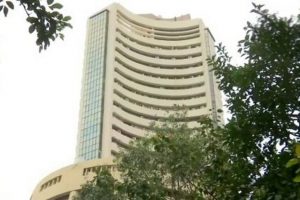As the selling pressure continues for the last two consecutive days following the Union Budget announcement, all eyes are on the Indian stock market after the US Markets including the S&P 500 and Nasdaq hit multi-week lows.
On Thursday, the S&P 500 dropped 2.31 at 5,427.13, the worst one-day trade since December 2022. The American benchmark that tracks the performance of 500 of the largest companies listed on the US stock exchange experienced its worst single-day performance.
Meanwhile, the Nasdaq saw its first major single-day percentage decline since October 2022. The Dow Jones declined 1.25 per cent, or 504.22 points, to 39,853.87.
The decline in American markets could be attributed to investors’ disappointment with the earnings of Alphabet and Tesla, two major giants in the world.
On the other hand, the Asian markets on Thursday also opened lower following the sell-off in US tech shares and a stronger yen.
Japan’s Nikkei 225 declined 2.58 per cent, 1,011.15 points, to 38,143.70 and Topix of Tokyo Stock Exchange’s Topix declined 2.17 per cent, or 60.55 points, to 2,732.57. Another significant stock market in Asia, the KOSPI of South Korea dipped 1.78 or 49.05 points, to 2,709.66.
As per market watchers, the Indian stock market is likely to mirror the global sentiment during its trade day on Thursday. During its opening trade on the last day, Asian markets mirrored Wall Street’s losses.
The Indian market on Thursday closed on a decline as the Nifty 50 index closed with a decline of 65 points at 24,413.50, while the BSE Sensex declined by 280 points to 80,148.88 points.
“The stock market will now shift its focus on Q1 FY25 earnings and global cues. The earnings season so far has been in line, with some green shoots visible in the IT and consumption sectors, although some sectors such as financials are seeing some strain,” said Rupen Rajguru, Head Equity Investments and Strategy, Julius Baer India, on Thursday.
The contrasting performance between the benchmark indices and broader markets highlights divergent investor sentiment amid budgetary and earnings scenarios.
In the last five trading days, the BSE Sensex has fallen 0.79 or 634.86 points, while the Nifty at the National Stock Exchange (NSE) has seen a decline of 0.51 per cent or 125.60 points in the same period.
Interestingly, the Union Budget had no major effect on the stock markets in the country. According to Ajay Bagga, a banking and market expert, the budget proved to be a non-event, with Indian markets falling and then recovering during the day itself.




